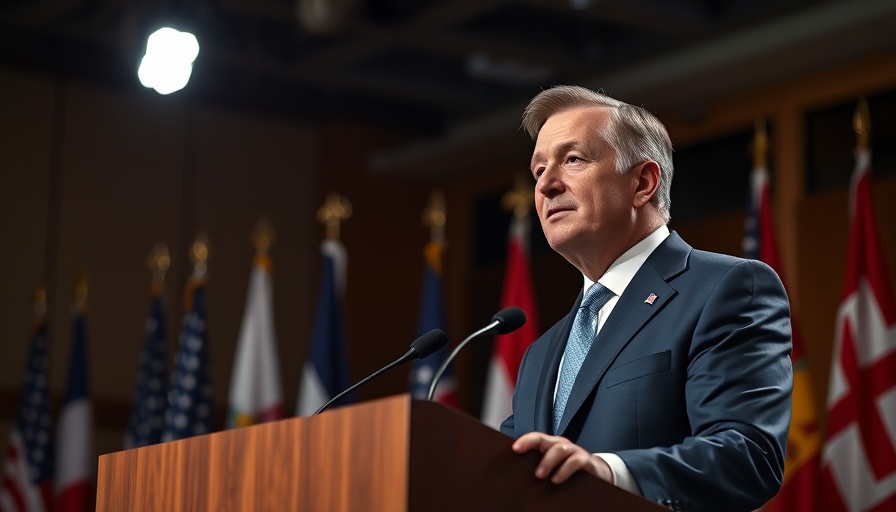
The Legislative Landscape: A critical 60 Days Ahead
As Florida lawmakers prepare to return to Tallahassee for their 60-day legislative session, the air is charged with urgency driven by pressing challenges facing residents. With over 1,800 bills filed touching on key issues such as housing affordability, education, and healthcare, the stakes are high this session. Lawmakers are not just tasked with creating legislation, but with addressing the mounting frustrations of voters grappling with a high cost of living and demanding solutions.
Housing Affordability: The 'A-word' That Everyone is Talking About
Among the plethora of bills introduced, housing affordability has emerged as a clear focal point. Over the past months, the issue has grown to be a top concern for Floridians, reflecting widespread anxiety over spiraling housing costs. The recent discussion led by House Speaker Danny Perez emphasizes this sentiment, encapsulating a sentiment echoed throughout the state: “I don’t want my daughter to go to college in 15 years and then eventually have to leave because she can’t afford it here.”
Legislators have put forward several proposals aimed at curbing the affordable housing crisis, ranging from allowing for the construction of additional dwelling units (ADUs) to preventing out-of-state corporations from purchasing residential properties and converting them into rental units. These proposals are not just about policy but are efforts to ensure that Florida remains a viable place to live for future generations.
Promising Measures amid Deep-rooted Issues
In a bid to tackle the housing challenges, Senator Don Gaetz's bill to standardize the building of ADUs reflects a dual approach to affordable housing: it aims to enhance housing availability while allowing homeowners to generate rental income. This innovative strategy is quickly gaining traction and has cleared initial legislative hurdles.
However, these aspirations come with their own set of challenges. Local governments may resist, citing potential issues with parking and zoning. There is a need to find common ground to ensure ADUs serve their intended purpose—meeting the workforce housing demand without overburdening infrastructure.
The Economic Factors Driving Legislation
Governor Ron DeSantis has also underscored the need for property tax relief, suggesting changes to property assessments that could lessen the financial pressure on homeowners. The governor’s remarks were met with both support and skepticism, with critics cautioning that substantive tax cuts would require constitutional amendments, which can be contentious in a politically divided landscape.
Among the broader spectrum of bills, there are also proposals aimed at revitalizing rural communities, a move backed by Senate President Ben Albritton. His vision for a 'rural renaissance' prioritizes infrastructure improvements, healthcare access, and supportive policies for agriculture, which is crucial for Florida's economy.
Education and Healthcare: Addressing Core Needs
Education, especially funding for pre-K initiatives and addressing the needs of children with autism, has also surfaced as a vital area of focus for the upcoming session. New proposals aim to expand state-sponsored programs that could alleviate burdens on parents while promoting child development.
Furthermore, health care remains a significant issue, particularly maternal health and accessible care resources. Bill proposals around doula support for pregnant women aim to confront the troubling trends of maternal mortality and access to quality healthcare in underserved regions of Florida.
The Political Dynamics at Play
As bills are debated, the underlying political dynamics between the Republican-controlled legislature and a governor navigating a divided chamber emerge as critical. The recent immigration debates showcased a level of civil unrest within party lines, underscoring the delicate task of coalition-building as leaders strive to maintain unity while responding to constituents’ pressing issues.
Political analysts also note the strategic influence of national figures, such as former President Trump, on local legislative agendas, which can sway the direction of proposed laws. Understanding these dynamics will be key for residents as lawmakers decide the trajectory of discussions and policies.
Actionable Insights for Residents
For Floridians, the looming legislative session presents an opportunity for active engagement. Residents are encouraged to closely monitor initiatives concerning housing and healthcare. Their involvement in advocacy can highlight top concerns, ensuring lawmakers are well-informed about the community's priorities. Participation can range from attending town halls to collaborating with local organizations to amplify their voice.
In conclusion, as Florida lawmakers prepare to tackle an ambitious array of bills, their decisions in the coming weeks will have lasting implications on affordability, healthcare, and education. Close attention is warranted, particularly in shaping policies that resonate with the needs and realities of everyday Floridians.
 Add Row
Add Row  Add
Add 



Write A Comment